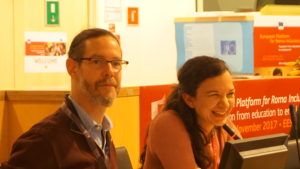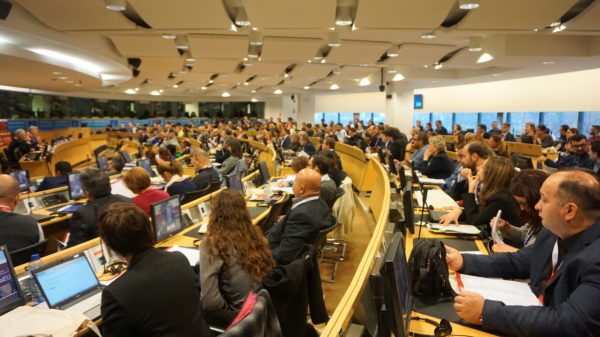Making the wheel roll
The European Platform for Roma Inclusion, convened by the European Commission, brings together national governments, the European institutions, international organisations and Roma civil society representatives. By creating a professional hub and meeting place for all, the goal is to strengthen co-operation and exchanges of relevant experience among all stakeholders on efficient Roma inclusion and integration policies and practices.
The European Roma Platform is a significant forum for reflection and apprehensive actions of the multi-stakeholder circle on social and economic integration the Roma population.
The 11th European Roma Platform took place on 27/28 November in Brussels and focused on the transition from education to employment. Szabolcs Schmidt, head of unit of non-discrimination and Roma coordination, delivered the opening remarks on behalf of the European Commission. The first panel provided evidence on the choice of this event`s topic. The latest numbers and percentages of the European Minorities and Discrimination Survey of the EU’s Fundamental Rights Agency show that despite growing national employment levels, the changes in Roma employment levels are small, or negative. The rate of those Roma who are not in education has also risen in almost all Member States of the EU where a considerable Roma population lives.
Participants from all over Europe shared their concepts and findings from the national level through thematic workshops in the afternoon.

ERGO Network was actively involved in the preparation and running of the event. Not only did several member organisations participate in the platform, ERGO director Jamen Gabriela Hrabanova also facilitated the thematic workshop on employment. ERGO furthermore launched a campaign to mobilize support for investing in employment opportunities for young Roma during the platform: `Investing in our future: What work(s) for young Roma?’ We brought the messages of young Roma themselves to the event, explored and developed at the ERGO Summer Academy by members of our network. 11 powerful testimonies of young Roma were furthermore portrayed on figurines exhibited around the venue of the event in order to raise awareness of the education and employment challenges of Roma in Europe.
The conclusions of the Platform might not be new to most, but they show the will of the EU institutions and civil society to make the wheel roll for Roma youth employment. It was clearly highlighted that particularly mechanisms challenging school segregation are in high need and that challenging antigypsyism needs to be the basis for combating poverty and social exclusion.
ERGO Network will definitely keep the wheel rolling to support the implementation of more and better education and employment measures for young Roma.



